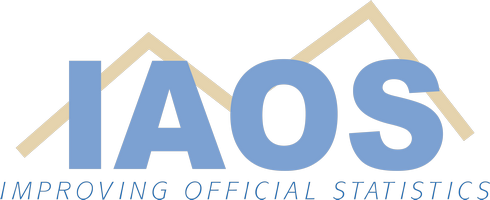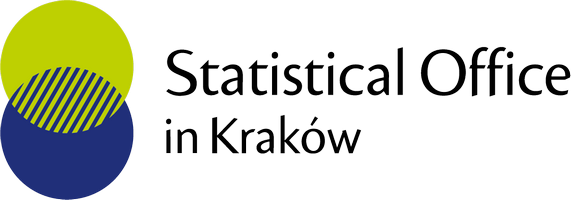| Status | Name | Country | Title of the contribution | Brief summary |
|---|---|---|---|---|
| Chair | Athanasios Thanopoulos | Greece | ||
| Speaker | Mr. Mike Thompson | United Kingdom | Flexible dissemination software for the 2021 England and Wales Census | "National Statistical Institutes and other organisations that manage access to confidential datasets are under continually increasing pressure to provide access to more data, more quickly, to researchers and the general public. Flexible dissemination—the capability to create custom statistical outputs on demand for a user—has the potential to help statistical agencies to meet this demand, and dramatically increase the efficiency of the publication pipeline along with the public value derived from statistical datasets. In this talk we present a technical case study of the implementation of a flexible dissemination service for the Office for National Statistics in the UK for use with the 2021 England and Wales census. We cover some background to the project, the methodological and technical approach taken to statistical disclosure control, the architecture of the solution, technical challenges encountered and overcome along the way, and look forward to the potential future applications." |
| Speaker | Drs. Elsa Dhuli | Albania | Professional ethics in official statistics | "The ethics as an element related not only to methods and procedures chosen as well as behaviors, is an integral part towards retaining trust in official statistics. Ethics is considering recently not only as human behavior but as well as an important principle to be followed in production process and in access of data. The Institute of Statistics in Albania follows the Code of Practice and the Fundamental Principles of Official Statistics. These principles are important in ensuring appropriate and reliable statistics. The ethical challenges that the statistics in Albania will be analysed through a dedicated section included in the staff satisfaction survey and in specific survey with focus on what to need to improve the ethics in production process. The staff has given their opinion on the importance of ethics through the production cycle of official statistics, challenges and behaviors and what we need to improve ethical behavior." |
| Speaker | Ms. Teodora Brandmuller | Luxembourg | Communicating regional, rural and urban statistics in a post-trust world | "Having trustworthy statistics and data on regions, rural and urban areas are fundamental for better territorial development policies and for informing the public at large. Communicating these regional and local data to wide audiences helps to increase the understanding of the diversity that exists and it sheds light on territorial disparities and similarities between urban and rural areas. On the one hand, bringing statistical information closer to citizens has the potential to build trust by presenting the data in a way users can relate to or even verify it. On the other hand, it increases need to explain the potential differences between personal or public perceptions and statistics. This presentation will offers insights into Eurostat’s experience of communicating regional and local information, statistics on rural and urban areas." |
| Speaker | Mr. Bruno Tissot | Head of Statistics, BIS | Data governance frameworks and the integration of alternative data into official statistics | Well-defined data governance frameworks have proved instrumental in supporting official statisticians’ task to collect and analyse data of the highest quality possible. However, an institution-level approach to data governance should be complemented by a broader focus covering the entire production and use of national statistics, including alternative sources. For instance, ensuring the following of adequate Codes of Principles by private data providers, clarifying the responsibilities in the national governance landscape, and establishing proper international guidelines and cooperation mechanisms. Moreover, while NSS organisations are facing a decline in their traditional function of “data collectors”, they have a key role to play as reference custodians of the quality of the data used by society. Establishing sound data governance frameworks based on widely accepted standards can be a central element in supporting this “data curator approach”. |
| Speaker | Dr. Serge Allegrezza | Luxembourg | Trust in Official Statistics across Europe: Evidence from two waves of Eurobarometer using Multilevel Models | "This paper uses data from Eurobarometer for the years 2007 and 2015 to investigate the determinants of trust in official statistics across 28 countries and 2 regions in Europe. Our estimation approach follows a multilevel modelling, which allows us to distinguish within county and between countries variations for explaining individual trust in official statistics. The econometric results show that trust in statistics is highly correlated with the overall individual trust in national institutions. The within country variation is mainly explained by the level of individual statistical literacy, education and occupation status. Whereas, with respect to the variation between countries, we show that neither the level of GPD nor the index of inequality are important to explain cross-country variation. Instead, the EU history membership, i.e. the “acquis communautaire”, is the main macro variable that explains the increase of trust in the official statistics across Europe." |



| Cookie | Duration | Description |
|---|---|---|
| cookielawinfo-checkbox-analytics | 11 months | This cookie is set by GDPR Cookie Consent plugin. The cookie is used to store the user consent for the cookies in the category "Analytics". |
| cookielawinfo-checkbox-functional | 11 months | The cookie is set by GDPR cookie consent to record the user consent for the cookies in the category "Functional". |
| cookielawinfo-checkbox-necessary | 11 months | This cookie is set by GDPR Cookie Consent plugin. The cookies is used to store the user consent for the cookies in the category "Necessary". |
| cookielawinfo-checkbox-others | 11 months | This cookie is set by GDPR Cookie Consent plugin. The cookie is used to store the user consent for the cookies in the category "Other. |
| cookielawinfo-checkbox-performance | 11 months | This cookie is set by GDPR Cookie Consent plugin. The cookie is used to store the user consent for the cookies in the category "Performance". |
| viewed_cookie_policy | 11 months | The cookie is set by the GDPR Cookie Consent plugin and is used to store whether or not user has consented to the use of cookies. It does not store any personal data. |